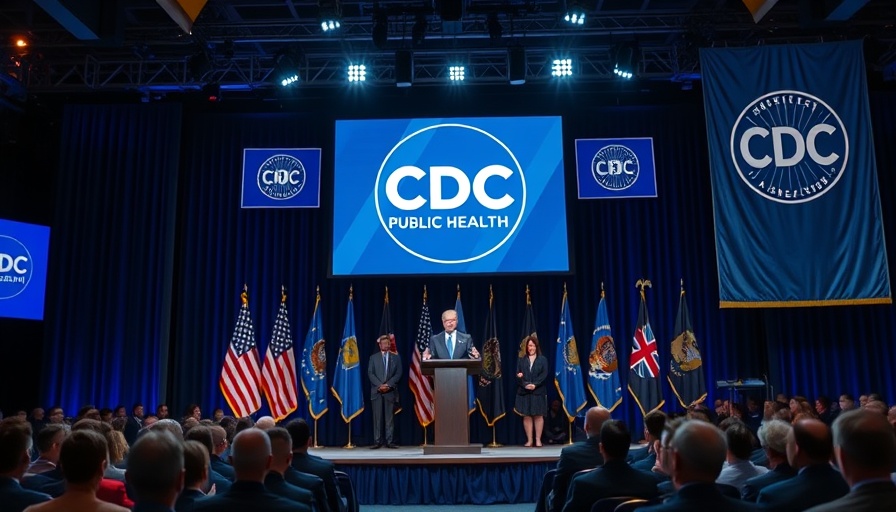
Understanding Regulatory Requirements for Packing and Shipping Dangerous Goods in Healthcare
In the evolving landscape of healthcare logistics, regulatory compliance regarding the packing and shipping of dangerous goods has never been more crucial. The need for healthcare professionals to understand and embrace guidelines set forth by entities like the CDC and IATA (International Air Transport Association) cannot be overstated. Recent webinars, such as the one hosted by Vic Whitten and featuring expert voices like Alicia Branch and Isaiah Hurtado, shed light on vital resources and training for those entrenched in the complexities of laboratory operations.
In 'Regulatory Updates and Resources for Packing and Shipping Dangerous Goods Trainers', key insights were presented about ensuring safety protocols, prompting a deeper dive into training needs.
Why It Matters: The Impacts of Improper Packaging
Improper packing and shipping of dangerous goods can lead to catastrophic outcomes. It's not just about compliance with laws—it's about the safety of patients and healthcare workers alike. The latest regulations, particularly updates included in the IATA’s 2025 Dangerous Goods regulations, spotlight the urgency of addressing infectious substances and hazardous materials properly. For instance, recent classifications, such as Mpox being deemed a Category A infectious substance, necessitate updated training and solutions for laboratory staff involved in packing and transporting specimens.
The Role of Training: Ensuring Preparedness and Safety
The CDC’s initiative, particularly its “Packing and Shipping Dangerous Goods: What Laboratory Staff Must Know” e-learning course, is an indispensable resource aimed at bridging this knowledge gap. Through structured training programs, healthcare professionals can grasp essential packing and shipping standards, thereby underpinning the significance of regulatory requirements that demand general awareness and functional training to mitigate risks associated with dangerous goods.
Steps to Become a Qualified Instructor
To effectively disseminate this information, the CDC has established a clear path for individuals seeking to become qualified instructors in this field. A comprehensive approach is taken, including the completion of foundational courses coupled with hands-on training opportunities. Notably, professionals are encouraged to co-facilitate training sessions, thereby enhancing both instructional quality and participant engagement.
Collaboration Among Healthcare Professionals: A Unified Commitment
The call for collaboration resonates throughout the recent discussions among trainers. Engaging experienced professionals in the training process allows new instructors to benefit from their expertise while ensuring best practices spread across the healthcare network. The development of a community of practice dedicates itself to building a knowledgeable workforce capable of effectively handling dangerous goods.
Conclusion: A Call to Action for Training Participation
In conclusion, healthcare professionals are urged to take an active role in educating themselves regarding the packaging and shipping of dangerous goods. As the regulatory environment becomes increasingly intricate, leveraging resources from organizations like the CDC and participating in training sessions will be paramount. Interested individuals are encouraged to reach out and express interest in upcoming courses designed specifically for this purpose. By prioritizing education on these matters, we not only ensure compliance but also elevate the standards of safety and care in healthcare.
 Add
Add  Add Row
Add Row 




Write A Comment